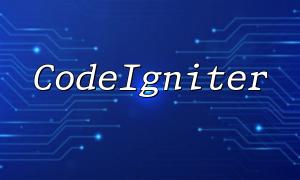PHP is a widely used programming language in web application development. With its ease of learning, flexibility, and scalability, PHP has become the preferred choice for many developers. This article will share important tips and best practices for PHP development, aiming to help developers efficiently implement various functions.
In PHP development, database design is crucial. A well-structured database can significantly improve system performance and stability. When designing a database, it's essential to first clarify the system's requirements and translate them into the database table structure. Avoiding redundant fields is key, and it's important to ensure data normalization and relationships between tables. Proper use of indexing and constraints can improve query efficiency while ensuring data consistency and integrity.
In PHP development, security is a critical concern. Preventing SQL injection, XSS attacks, and CSRF attacks are essential skills every developer should master. To secure the system, we can use parameterized queries and prepared statements to prevent SQL injection, filter and escape user input to prevent XSS attacks, and generate and verify tokens to prevent CSRF attacks.
Modular development and code reuse not only improve development efficiency but also enhance code maintainability and scalability. By dividing system functionality into independent modules, we can develop and test them separately and then call these modules via interfaces or classes. This approach reduces code redundancy and improves code quality.
Database queries are common operations in PHP development. To improve system performance, we need to optimize queries. Using indexes, designing database tables efficiently, and avoiding full-table scans can enhance query performance. Additionally, caching mechanisms can reduce redundant database queries and significantly improve system response time.
Errors and exceptions are inevitable in PHP development. To quickly identify and resolve issues, we need to record error logs. PHP provides built-in error handling functions and logging mechanisms to help developers trace and fix problems. Moreover, using try-catch statements to capture exceptions ensures system stability.
Interaction between PHP and the front-end is equally important. AJAX can be used for asynchronous data transfer, which enhances the user experience. Additionally, using JSON format for data transfer improves both the efficiency and security of data transmission.
From the above tips, it is clear that while PHP is easy to learn, achieving efficiency and security in development requires continuous learning and practice. We hope this article can provide valuable insights for those learning or working with PHP, helping them become more proficient in PHP development and implement more features.








